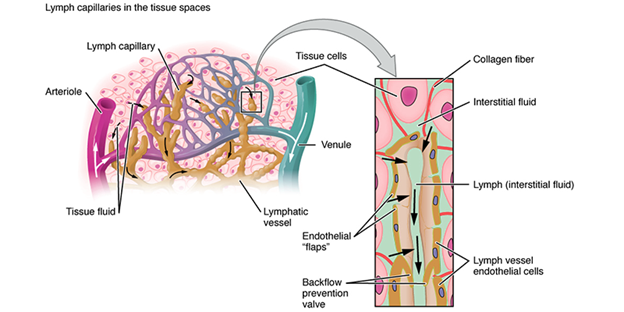
Students are familiar with various concepts and terms, including the term lymph. The interesting fact about lymph is that the whole body is encompassed with lymph vessels similar to the blood vessels and has a complex nature. The cells of the body are supported really well by them, as it receives oxygen and nutrients from the same. The lymph gets recirculated through the vessels themselves as they have no endpoint.
The Mechanism in Lymph Vessels
The lymph fluid is pumped away from the cells by the lymph vessels and capillaries. The vessels of this fluid do not have a pumping apparatus like the heart. In its place, there are vessels of the fluid with valves in one way fashion, and the motion of the muscles pump the fluid. Simply put, there are vessels for this fluid equivalent in number to the vessels and capillaries of blood.
The fluid running through its vessels finally reaches the lymph node, which is 100 in number in our body. These nodes filter the fluid by removing debris and alien cells from it, and it also contains white blood cells (WBCs) in large numbers. When somebody gets infected, these nodes will swell while the WBCs work tirelessly to fight the alien cells behind the infection. The fluid, once filtered, moves back to the bloodstream through certain points.
Functions of Lymph
- Cells of the body are kept moist by the aid of this fluid.
- It helps in maintaining the blood volume in the body, as whenever such conditions occur, the fluid rushes from the systems where they are present to the vascular system of blood.
- It helps in the transportation of plasma protein macromolecules that are synthesised in liver cells, along with hormones produced by the endocrine glands, to the blood. The molecules of these elements would not be able to pass through blood capillaries that are narrow but could move swiftly through the lymphatic capillaries.
- The fluid transports and absorbs fat and fat-soluble vitamins from the intestine. Lacteals present in the intestinal villi help in assisting the process of absorption and transportation of fat.
From the above discussion, one could easily point out that lymph systems are an integral part of human physiology and understand their importance.
Comments